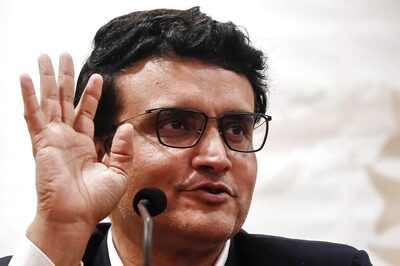
views
KOCHI: One day, at 2 a.m., Lithuanian journalist Justas Patkauskas was finding the heat unbearable at his hotel room in Fort Kochi. So he decided to go for a swim. But as he stepped into the water, a couple of policemen, who were strolling on the beach, asked him to leave. As Justas was walking away, with a towel placed around his shoulders, one of the cops shouted, “You bring shame to Europe and your country.” A disappointed Justas says, “Fort Kochi is such a beautiful island. It is sad that the beaches cannot be used at night, like we are allowed to, in Europe .” In the policemen’s defence, they were implementing a rule which bans swimming on public beaches after 9 p.m. “I can understand that there are high tides and it can be dangerous,” says Justas. Nevertheless, Justas loves Fort Kochi. “Before coming here, I had been warned that people will grab you by the arm and force you inside shops,” he says. “But it has never happened to me. In fact, I am told that such things happen only in North India. Here, the atmosphere is chilled-out. The people are friendly and kind. No one seems to be in a rush. But it becomes different when you go to the mainland.” The Lithuanian finds the presence of so many billboards in Kochi as ‘freakishly horrible’. “The city is a jungle of advertisements. It is disappointing to see a state with so much of culture and heritage following some of the worst aspects of Western culture — aggressive consumerism and relentless advertising. There is no urban planning or responsible expansion.” Apart from ugly billboards, Justas is also taken aback by the shyness of the women. “I spoke to this 21-year-old medical student, Smita Raju (name changed), at the Indian Coffee House,” he says. “Smita was shy and reserved. I found most women in Kerala were like her.” Smita lives in a hostel and has to be back every day by 6 p.m. “I found it unbelievable,” says Justas. “It is like living in a convent.” By the age of 21, Justas had studied in Spain, Ireland, Finland, and other places in Europe and had the best time of his life, going for parties and meeting all types of boys and girls. “But Malayalis have a much more private life,” he says. “It is more family-oriented, which is good, but at the same time it would be nice if people are more open.” Meanwhile, Justas is enjoying the tropical climate. “I love the sunlight hitting my skin,” he says. “In Lithuania [which is near Poland], it is very cold. It rains often, so it is always cloudy. You wake up every morning and see grey skies, a constant drizzle, and no leaves on the trees. It makes you feel gloomy. As a result most Lithuanians are reserved and speak little.” This increased a lot during the occupation of the country by the Soviet Union (1944-90). “There was no freedom of speech,” says Justas. “The presence of the secret police for many years affected social life. People were afraid to trust each another. It takes time for society to regain faith in public institutions.”In Fort Kochi, Justas has been writing articles for magazines and newspapers in Lithuania. “The last one was about the auto-rickshaw drivers,” he says. “I am also interested in the Communists.” And then Justas drops a bombshell. In Lithuania, Communism has been banned.“When you spend so many decades under the influence of a foreign ideology, you try to distance yourself from it,” he says. “So, nobody is allowed to use Communist symbols like the hammer and sickle.” Just as Communism is discredited, the print media, like in every other nation in Europe and America, is going through a crisis.“The future is bleak,” he says. “The people are reading less and spend most of their time watching TV.” Despite this, Justas is committed to life as a journalist. “I like writing a lot,” he says. “Seeing my name in print gives me a big kick.”



















Comments
0 comment